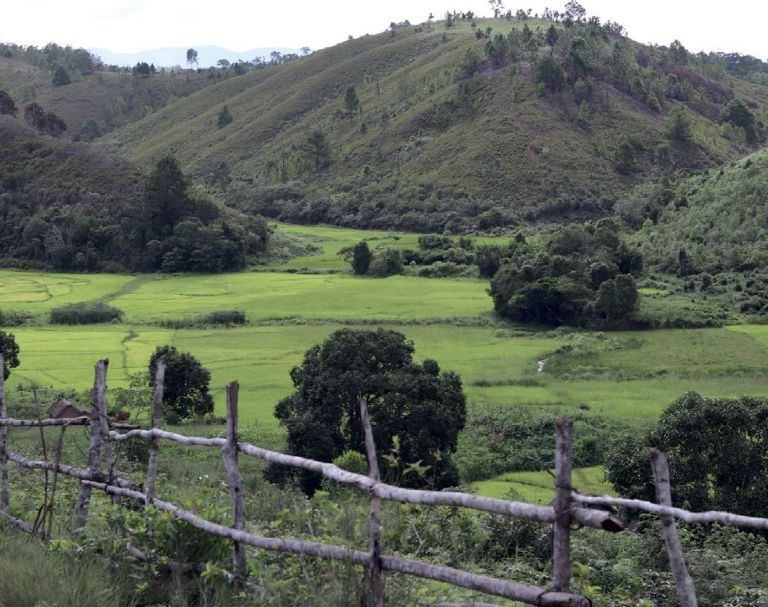"Appeals for decolonising North-South collaboration in research"
Carte blanche for O. Ravaka Andriamihaja, University of Bern
5-5-2023 – Our current global challenges require global collaboration. The colonial practices for North-South collaboration in research create dependence and invisibility, undermining the chances of finding solutions to these challenges. To combat this, collaboration and the development of knowledge through such research must be decolonised. I therefore make five proposals on how to end this situation.

The article reflects the personal opinion of the author and does not necessarily reflect the position of SCNAT.
Collaboration in research can be a form of colonisation if it favours dependence on the North and encourages hiding forms of knowledge other than those that are authoritative. Firstly, funding for and the design of research projects comes uniquely from the North for use in studying the South. The North thus has greater access to decision making and resources. For example, institutions in the South can't manage granted research funds directly without an intermediary from the North. In many cases, the South finds itself being delegated responsibility for collecting data, while the North is tasked with analysis. This situation puts the South in a minor role with less responsibility.
Secondly, the North dominates the design and communication of findings. Those considered for research concepts and methods come from the North. Local and indigenous knowledge is taken into account to a minor extent. In addition, scientists in the North do more of the analysis and publication. If publications are one of the main sources of knowledge, the main publishers are based in and controlled by the Global North. As a result, the spread of scientific findings and thus the visibility of scientists is focused on the North through publication.
Decolonising collaboration and the production of knowledge
In its present form, North-South collaboration in research weakens the South and favours an imbalance of power. It puts the South in a position of neediness and the North in one of guardian. However, such collaboration should evaluate relations and interactions, go beyond mere consultation of the South and be truly inclusive and coproduced. The issues associated with the collaboration in research should also cater to the needs of the society being studied. Last but not least, the necessary resources must be made available for such coproduction.
An inclusive organisational structure can enable collaboration to play a part in producing decolonised knowledge. Decolonised writing and knowledge include multiple voices and constant critical interaction with the dominant knowledge. The pertinence of knowledge is contextual, based on where it was developed. As a consequence, the production of knowledge must match the pertinence as well as local needs. At the same time, it must be communicated in the language of the communities that use such knowledge. Acquired knowledge must also be available in the local language. In addition, a variety of proofs and formats must be accepted as a type of knowledge source and used for communication.
Let's guarantee diversity and avoid exclusion
Decolonisation is a continuous process and a collective responsibility. Decolonising research collaboration means eliminating all forms of discrimination and fighting for access and equity by integrating different perspectives. The North must recognise other forms of knowledge and non-western authority. Interdependence and the coexistence of various forms of knowledge help to avoid exclusion.
With regard to the way ahead, I make the following five (non-exhaustive) proposals for decolonising North-South collaboration in research:
- Let's stop funding and acquiring research projects aimed uniquely at enabling the North to study the South. Instead, let us support the funding and design of research projects that enable scientists and institutions in the South to also study the North.
- Let's stop excluding institutions in the South from being involved in the design, content and budgeting of products (before submitting the research proposal). Instead, let us provide sufficient time and resources for codesigning research proposals and jointly managing research funding.
- Let's stop permitting the North and the South being treated differently. Instead, let us ensure that the South has access to laboratory software, data pools and publications, training courses, for instance in languages, and favourable working conditions such as social welfare.
- Let' stop using scientists in the South solely as data collectors and then employing those in the North to analyse the data. Instead, let us provide the South with the necessary support so that it can analyse data and publish findings itself.
- Let's stop underestimating local and indigenous knowledge. Instead, let us start using and promoting local and indigenous knowledge and personnel (who haven't published scientific articles before) to solve the problems relating to their own communities.
—
O. Ravaka Andriamihaja PhD is originally from Madagascar. She works on land governance and sustainable development at the University of Bern's Centre for Development and Environment (CDE). Her text was inspired by a study on decolonising North-South collaboration in research, undertaken by the CDE at the behest of the Commission for Research Partnerships with Developing Countries (KFPE).
Ulteriori edizioni di Carte blanche – scientists' point of view
- « Des valeurs limites ne résoudront pas le problème des PFAS »
- « Protéger les grands fonds marins et accélérer la recherche scientifique pour une exploitation durable des ressources »
- « La biodiversité unique des eaux souterraines demande plus d’attention »
- « En matière d’aménagement du territoire, des mesures immédiates sont essentielles pour atteindre l’objectif de stabilisation »
- « L'Observation du paysage suisse doit gagner en pertinence pour la pratique »



